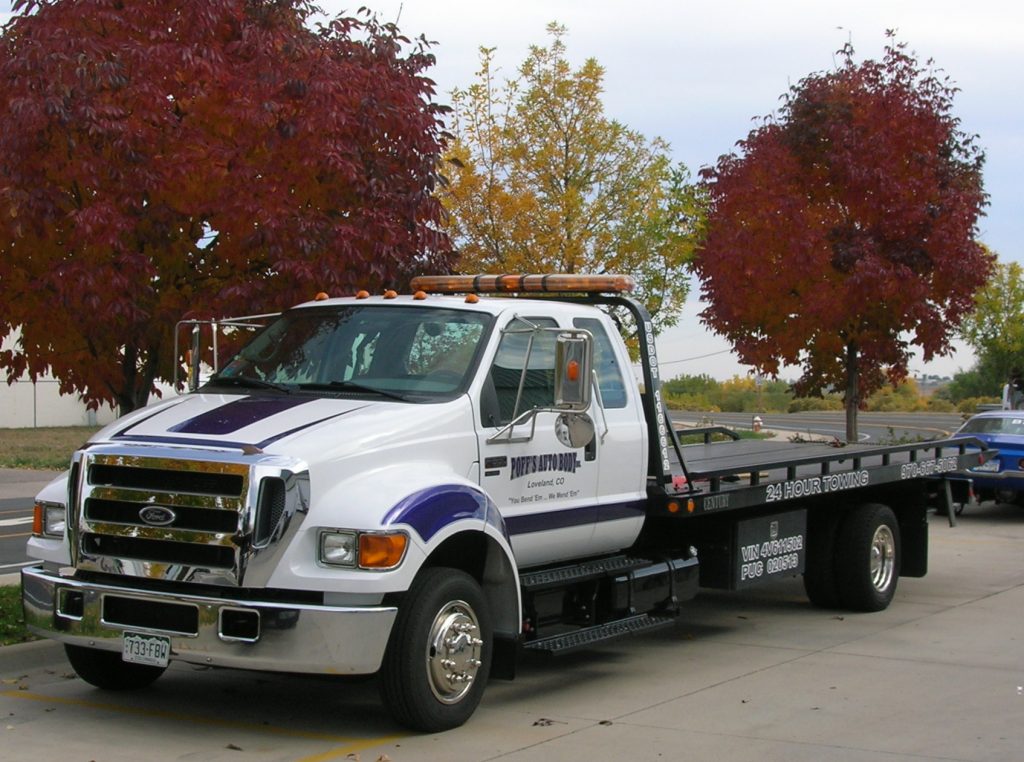Court Strikes Down City’s Towing Policy
No more public filing of towing costs required of companies. But ruling allows drop fees.
Private tow truck operators scored a win in late January when the Wisconsin Court of Appeals struck down a City of Milwaukee ordinance that required them to report the cost and equipment used for every non-consensual tow, even if it was on private property.
But the court did leave in place a drop-fee policy that requires vehicles to be returned to their owners if they pay $50 in advance of the vehicle being fully connected to the tow truck.
Attorney Emil Ovbiagele called it a “partial victory” in an interview with Urban Milwaukee.
“There is no ordinance or any law that I’m aware of in the city, and probably the state level, where businesses are required to perpetually just share their private internal data,” said Ovbiagele, who challenged the ordinances for client Always Towing and its owner Jason Pehowski.
Then-alderman Nik Kovac, in a September 2019 hearing on the reporting policy, said the data was to be used to seek out “unusual” practices, including special fees. A 2015 investigation by Fox 8 reporter Bryan Polcyn showed Always Towing would charge special equipment fees, creating a bill of nearly $400, even when no special equipment was visibly used. State regulations govern what can be charged for private towing, and Kovac said he was interested in preventing “scams.”
“This is an opportunity to increase transparency, allowing both the consumer and the regulatory agency, the City of Milwaukee, to have some honesty in the system,” said Ald. Michael Murphy, Kovac’s co-sponsor on the legislation.
The council unanimously adopted the policy in November 2019, with Alderwoman Milele A. Coggs joining as a co-sponsor.
“This is really a consumer protection law,” said Murphy before the council vote.
Now it’s not a law, because a court found it contradicts one already on the books.
State statute 349.13(3m)(d)2 requires towing companies to call the local police department before towing to confirm the vehicle isn’t stolen and to provide a record of where it will be taken. “The statute is very reasonable,” said Ovbiagele.
The three-judge appeals court panel of William W. Brash III, Joe Donald and Timothy Dugan ruled that the city’s reporting requirement is in legal conflict with the state statute. The panel overruled a circuit court decision by Judge William Pocan in the city’s favor.
“It was poorly thought, poorly executed and likely unconstitutional,” said Ovbiagele of the reporting ordinance.
He also has a pending case in federal court on behalf of Brew City Towing and its owner Nietzche Camareno which argues the reporting requirement is a warrantless search that violates the Fourth Amendment and is a due process violation under the 14th Amendment. Both parties are due to file summary judgment motions within the next week.
“Obviously, no one likes towing companies,” said the attorney. “It’s one of those jobs where someone has to do it. As a matter of fact, I believe a crucial component of the city’s plan to deal with reckless driving is towing vehicles. It’s a necessary utility.”
The attorney singled out his own profession and bars, a client type he often represents, as potentially at risk of needing to provide the same private revenue data in the future.
“My fear is that government institutions, they never stop there. Then it becomes another industry. ‘Hey, you know what? We just don’t like bars,'” said the attorney. “It’s no different than asking you to turn over your personal financial records to them.”
As of 2019, Department of Public Works parking services manager Thomas Woznick said there are “10 to 15” companies that regularly perform non-consensual tows. Kovac, when the policy was approved by the council in November 2019, said DPW had called 13 companies and seven of them supported the policy.
But the companies that opposed it were vocal about it.
“We are turning over private information to an entity we are in essence competing with,” said attorney Michael Maistelman of the city’s own contracted towing operation during the September 2019 hearing. He was representing a coalition of tow truck operators.
“This isn’t Burger King and you’re not going to get it the way you want it all the time,” said then-Public Safety & Health Committee Chair Robert Donovan in October 2019.
Kovac said the reporting data would be used to verify complaints, but Ovbiagele later argued that it could be used to terminate the licenses of operators.
This is the second court victory Ovbiagele has scored against the city in recent months. He was also successful in defending the license of a gas station owner whose convenience store was used to record a pornographic film on due process grounds. The Common Council is poised to amend its licensing framework as a result of that November 2022 ruling.
Drop Fee Maintained
The appeals court left in place the controversial drop-fee policy which requires tow truck operators to allow those about to be towed from both private and public property to pay a $50 fee to “drop” the vehicle if the owner spots their vehicle being prepared to be towed before it is “fully hooked up.”
The court ruled that the city’s drop fee policy is not preempted by state law and does not violate the spirit of, conflict with or defeat the state’s regulation of tow trucks. “Rather, we conclude that the drop fee ordinance falls into a gap in state law where the owner or authorized operator of the vehicle to be towed arrives before the tow of the vehicle occurs,” says the decision.
Ovbiagele said his client’s objection to the drop-fee policy wasn’t the fee itself, but the alleged dangerous situations it creates during the process. He said tow operators are vulnerable to angry vehicle owners and must wait at the scene because of the policy.
The drop fee was created in 2015 and modified in 2019.
On Feb. 13, a three-judge panel from the Wisconsin Court of Appeals rejected the city’s motion for reconsideration of the reporting ordinance. “After reviewing the motion, we conclude that reconsideration is not warranted,” says the denial.
Due to the sustained turnover in the City Attorney’s Office, the attorneys representing the city repeatedly changed since the case was first filed in 2019. Assistant city attorney Tyrone St. Junior initially oversaw the case with fellow assistant city attorney Kimberly Prescott. Deputy city attorney Todd Farris was added to the case in 2021, the same year he was hired. But Farris formally withdrew in February, after the initial appeals court decision. The city is currently represented by newly-hired deputy city attorney Jennifer L. Williams and assistant city attorney Kyle Bailey.
Ovbiagele’s law partner Samantha Huddleston Baker also represented Always Towing. Timothy Baldwin of JB Enterprises was initially working on the case with OVB, but withdrew in January 2021 according to court records.
Always Towing and four other companies, with Baldwin as their lead attorney, unsuccessfully challenged the legality of the city’s contracted vehicle scrapping agreement with Alter Trading in federal court in 2020. The plaintiffs, which included Brew City Towing, were also unsuccessful on appeal.
A copy of the appeals court decision is available on Urban Milwaukee.
Political Contributions Tracker
Displaying political contributions between people mentioned in this story. Learn more.
- May 7, 2015 - Nik Kovac received $100 from Todd Farris
- May 7, 2015 - Nik Kovac received $394 from Michael Maistelman
City Hall
-
Council Blocked In Fight To Oversee Top City Officials
 Dec 16th, 2025 by Jeramey Jannene
Dec 16th, 2025 by Jeramey Jannene
-
Latest Effort to Adopt New Milwaukee Flag Going Nowhere
 Dec 3rd, 2025 by Jeramey Jannene
Dec 3rd, 2025 by Jeramey Jannene
-
After Deadly May Fire, Milwaukee Adds New Safety Requirements
 Dec 2nd, 2025 by Jeramey Jannene
Dec 2nd, 2025 by Jeramey Jannene





















